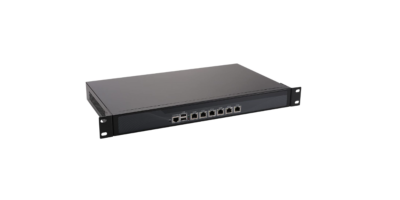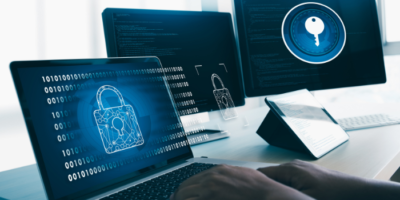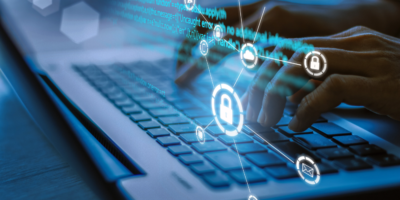In the age of digital transformation and remote work, healthcare providers are increasingly relying on remote access solutions to ensure staff can work efficiently from anywhere. However, with this convenience comes heightened responsibility – especially when sensitive patient information and regulatory compliance like HIPAA are at stake. Ensuring secure remote access for healthcare staff is not just a best practice; it’s a necessity. In this blog, we will explore best practice tips for secure remote access in healthcare.
10 Best Practices for Secure Remote Access for Healthcare Staff
Here are the key best practices that healthcare organizations should adopt to secure their remote access systems and maintain the trust of their patients and partners.
1. Implement Multi-Factor Authentication (MFA)
The first line of defense in any secure remote access setup is robust user authentication. Multi-Factor Authentication (MFA) requires users to provide at least two verification methods – such as a password and a mobile verification code – before gaining access to the system.
For secure remote access for healthcare staff, MFA reduces the chances of unauthorized logins due to stolen credentials and ensures only verified users can access electronic health records (EHR) and other sensitive data.
2. Use Virtual Private Networks (VPNs)
A VPN encrypts the internet connection between remote users and the healthcare organization’s network. This is crucial in preventing cybercriminals from intercepting sensitive data as it travels over the internet.
Healthcare staff should only access patient data through secure VPN connections, especially when using public or home Wi-Fi. VPNs help meet HIPAA security standards and protect against data breaches and eavesdropping.
3. Apply Role-Based Access Controls (RBAC)
Not all healthcare employees need access to all types of patient data. Role-Based Access Control (RBAC) ensures that each staff member only accesses information relevant to their job function.
By limiting access privileges, healthcare organizations can reduce the risk of internal data misuse and maintain better control over how information is viewed and handled—an essential step for maintaining secure remote access for healthcare staff.
4. Keep Devices and Software Up to Date
Remote devices used by healthcare workers—laptops, tablets, smartphones—must be kept up to date with the latest security patches and software updates. Outdated systems are vulnerable to cyberattacks and can become an entry point for ransomware or malware.
Healthcare IT teams should regularly monitor and push updates remotely, ensuring all staff use only compliant and secure software when accessing patient information.
5. Encrypt All Data in Transit and at Rest
Encryption ensures that even if data is intercepted, it cannot be read without the decryption key. All patient-related communications and documents should be encrypted both during transmission and when stored on devices.
This approach aligns with HIPAA requirements and strengthens overall secure remote access for healthcare staff, protecting against accidental leaks or intentional breaches.
6. Deploy Endpoint Security Tools
Endpoints such as laptops and mobile devices are often the weakest links in a remote access environment. Deploying tools like antivirus software, endpoint detection and response (EDR), and mobile device management (MDM) solutions helps identify threats quickly and remotely wipe data if a device is lost or stolen.
These tools provide an added layer of protection, ensuring the security of patient records even when accessed from outside the hospital or clinic network.
7. Educate Staff on Cybersecurity Hygiene
No matter how advanced your security tools are, human error remains a major vulnerability. Continuous education and training are essential to ensure that healthcare staff understand best practices for secure data handling.
Training topics should include recognizing phishing emails, avoiding suspicious downloads, creating strong passwords, and understanding the legal responsibilities under HIPAA.
According to IBM’s Cost of a Data Breach Report, the average healthcare breach costs $10.93 million – more than any other industry. Ensuring secure remote access is vital to protecting sensitive patient data and maintaining HIPAA compliance.
8. Monitor and Audit Remote Sessions
Healthcare organizations must keep logs and monitor all remote access activities to detect unusual behavior. Automated alerts can identify failed login attempts, unauthorized file access, or suspicious activity.
Regular audits ensure compliance with internal security policies and regulatory requirements. They also help organizations identify and fix vulnerabilities before they are exploited.
9. Use Cloud Services with Healthcare Compliance Certifications
Cloud-based applications and platforms should be HIPAA-compliant and offer secure access protocols. Choosing a provider with a proven track record in healthcare data management ensures that data storage, sharing, and access are protected by industry-standard encryption and compliance frameworks.
Secure cloud solutions also make it easier for remote staff to collaborate without risking data integrity or privacy.
10. Have a Business Continuity and Incident Response Plan
Even the most secure systems can be compromised. A business continuity plan ensures that your organization can recover quickly from a cyberattack or system failure. It should include data backup procedures, remote work contingency plans, and communication protocols.
An incident response plan helps minimize damage and recover systems faster, which is especially critical in the healthcare sector, where downtime can impact patient care.
Final Thoughts
Securing remote access in the healthcare industry is not a one-time setup – it requires continuous monitoring, frequent updates, and an informed workforce. By following these best practices, healthcare organizations can ensure secure remote access for healthcare staff, reduce the risk of data breaches, and maintain compliance with privacy regulations.
About Our Services
At MedicalITG, we specialize in delivering comprehensive managed IT services for healthcare. From HIPAA-compliant remote access solutions to real-time monitoring and data protection, our experts help healthcare organizations secure their IT environments and improve operational efficiency. Contact us today at (877) 220-8774 or email info@medicalitg.com to schedule a consultation.










